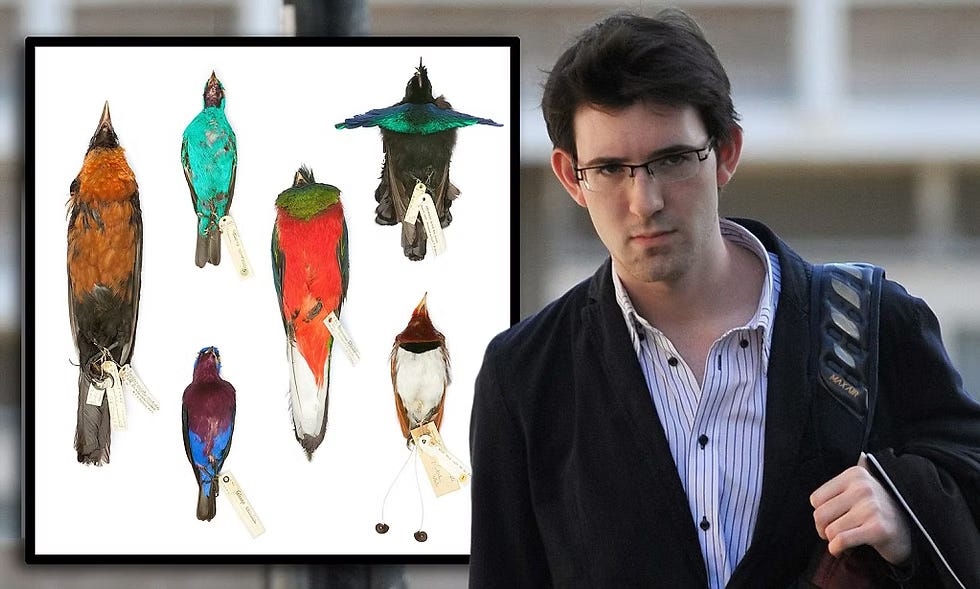A flute player obsessed with fly tying breaks into the Natural History Museum in Tring, England.
He is after rare bird feathers. The heist goes off spectacularly well, and the bandit makes off with 299 bird skins, some over 150 years old. The feathers he would pluck from these long-dead birds would seriously up his fly-tying game, and they also happened to be worth a fortune in the fly-tying underworld.
Edwin Rist transformed from struggling conservatory student to international feather dealer, shipping contraband plumage worldwide to other fly-tying enthusiasts willing to pay top dollar for a shimmer of Cotinga or Resplendent Quetzal. He played flute by day and dealt feathers by night. But the secret feather bonanza lasted only about a year before the long arm of the law closed in, and Edwin’s hidden life of avian crime came crashing to a halt.
The world expected the gavel to come down hard on him. After all, he’d meticulously planned a major museum theft, showed little remorse, and profited handsomely from the destruction of priceless scientific specimens.
But then the courtroom plot twisted.
A mental health expert testified that Edwin had Asperger’s syndrome, and rather than hand him a jail sentence, the judge handed him back his flute. The once-feather-smuggling criminal was sent back to music school to finish his degree like nothing had happened. (There was a hefty fine, but still…)
This did not sit well with Kirk Wallace Johnson. Appalled by the lack of justice—and even more disturbed by how few people in the fly-tying community seemed to care—Johnson spent three years investigating what came to be known as The Feather Thief.
His journey took him deep into the dusty world of ornithology, Victorian fashion, taxidermy crime, salmon flies, and the bizarre global economy of black-market bird parts. He even managed to land an eight-hour interview with Rist himself—hoping, perhaps, to find remorse, redemption, or at least a half-decent apology.
He got none of those.
Rist didn’t seem sorry. He didn’t even seem particularly interested in pretending to be sorry. After all, as he told Johnson, they were just dead birds. Why not put them to good use? Johnson learned a lot spending eight hours with Rist, but one of his clearest conclusions was Rist’s misdiagnosis of Asperger's.
Johnson’s faith in humanity is tested as he sluthes through the fly-tying community. People are greedy, and even a noble cause like collecting bird specimens across generations for scientific research is not a good enough reason to prevent people from discounting basic moral restraint to get what they want.
Which raises the ultimate question: If a flute-playing feather thief can pull off a museum heist, sell stolen goods for a year, and still graduate on time... what, exactly, are the rest of us doing with our lives?
Do you have a little more time? Watch Bullet Book Reviews on YouTube, where I review this book in under two minutes!








Now I want to read this book.